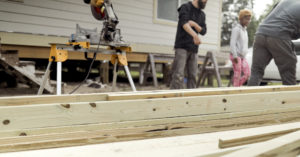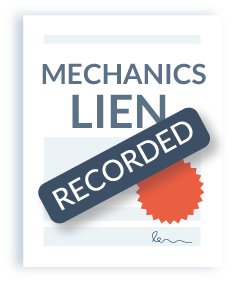
For subcontractors, getting a deposit payment on a project is a good way to improve cash flow and ensure that you can pay for your materials. For GCs, being asked to pay a deposit can put a real crunch on cash flow. It can also leave them worrying whether a sub will perform once they make the down payment.
How can subcontractors and GCs come to an agreement on deposit payments? First, we’ll look at why GCs are concerned about providing money up front. Then we’ll discuss some tips for subcontractors to work together with GCs and other parties, so everyone can get what they need.
Why GCs Don’t Like Giving Subs Deposit Payments
Upfront deposits are increasingly rare in the construction industry. In a 2020 construction payment survey, only 23% of contractors said they always get a deposit at the start of a project. There are several reasons why GCs aren’t particularly fond of giving deposits to subcontractors before they begin working. Giving out money up front carries significant risk for the general contractor.
The GC doesn’t trust you yet
Once they have a deposit in hand, the subcontractor may walk away from the project. No one wants to pay someone to do work and then have them skip out.
Once a sub has some cash in hand, the work may not seem as important. Or a sub may be suffering from cash flow problems and may not be able to do the work, even with a deposit. Making payment up front leaves the GC with a liability they can’t control. Having a strong construction contract helps, but it can’t bring the money back if a sub walks away. Litigating a breach of contract is an expensive endeavor, and may not be worth the amount they can recover.
The GC has multiple subcontractors to pay
The GC has to find the cash to pay a deposit to their subcontractor. Many GCs, like many subcontractors, run on tight margins. Finding the funds to pay for an unexpected expense of any kind can be difficult. GCs often have little notice before starting a job, and they are also responsible for paying up-front expenses for mobilization and the temporary facilities for the project.
Add material deposits from several subcontractors, and a GC can suddenly be out a lot of money in a short amount of time.
The GC isn’t getting a deposit, either
It can take a long time to get paid in construction. The GC won’t get paid for the subcontractor’s work until it’s complete or the materials are installed. Most prime contracts (between the owner and GC) stipulate that only installed work is paid for. The GC often can’t bill for material expenses and deposits until the work is in place, which could be weeks or months down the line.
Meanwhile, the GC foots the bill for the deposit and has to find a way to cover those expenses out of their own pocket. And they still have their own expenses to pay. This can put a GC in a deep financial hole that they may not be able to recoup for months due to draw schedules.
What subcontractors can do when the GC won’t provide a deposit
There are two basic ways a subcontractor can approach the situation when the general contractor won’t give a deposit:
- Address the GC’s concerns to convince them to give you a deposit
- Find ways to stretch your own cash further
How subs can address the GC’s concerns
Ultimately, a GC’s reluctance to pay subcontractor deposits boils down to two things: trust and cash flow.
Generally, GCs don’t like giving deposits to subcontractors they don’t trust. If you’ve never worked with a particular GC before, you haven’t built any trust with them yet. They’re not particularly eager to give you some money up front to cover your material costs. They want to make sure you can finish the job first.
In addition, the GC is also concerned about their own cash. Construction projects are notoriously unpredictable, and extra costs have a habit of popping up unexpectedly. Every project manager wants to keep some cash reserves on hand to make sure they can meet unanticipated demands.
1. Request a lower deposit amount
If your deposit requirements are meant to show good faith, consider lowering the payment amount. Some subs use a deposit payment as a guarantee that helps ensure the project will happen.
If your deposit amount isn’t directly tied to expenses you incur when starting the project (e.g. material costs), you may want to consider lowering it. This will help the GC, as they won’t be required to spend as much money up front. At the same time, you still get the security of knowing that the project will go as scheduled.
2. Ask the owner to pay your suppliers directly
The GC or property owner may worry that you’ll take a deposit and run off with it, or fail to actually deliver the payment to the supplier. If this is the case, consider asking the GC or property owner to arrange payment to the material supplier directly. This can be an effective way to reduce your own cash burden.
There’s little to no downside for the property owner here, since they need those materials in any case. Even if you quit the job prematurely, they’ll have the materials on site for your replacement to install.
3. Negotiate a deposit in exchange for a performance bond
If trust is the primary concern, consider purchasing a performance bond in exchange for an upfront deposit. A performance bond effectively guarantees your performance. If you fail to meet the contract requirements, the bond surety will step in and make sure your work is finished – at no cost to the owner or GC. (Of course, working with a surety can have some risks for the property owner, so they still might be hesitant to agree.)
4. Ask for payment schedule flexibility
If all else fails, see if the GC is willing to talk to the bank or owner to change the payment schedule. You may be able to work out some special terms with the bank or project owner to approve payments based on materials stored on-site instead of just those that have been installed. By working with the entire project team, you are showing your willingness to cooperate. You may find that there are more options available when everyone knows what is going on.
How subcontractors can stretch their own cash further
1. Improve your own accounts receivable to free up cash
Unfortunately, payment delays are all-too common in construction. Having to front cash for expenses that you’re hoping to get paid for in 30, 40, or even 60 days can really put the squeeze on your bottom line, and prevent you from taking on new business. If you have outstanding invoices that you’re waiting to collect on, take steps to speed up payment. If you are struggling to pay suppliers on Project B because of late payments from your customer on Project A, it’s time to rethink your credit policy.
Why would you spend time begging a GC for a deposit when you have cash floating around that you haven’t collected on yet? On projects where you’re not coming up against the lien filing deadline, sending a Notice of Intent to Lien can be an incredibly effective way to speed up payment. Other projects may require you to file a mechanics lien to spur payment from the owner.
In any case, cleaning up your accounts receivable is the best way to get your hands on cash. After all, this is money that you’ve already earned – money that you can put to immediate use on your current projects.
2. Seek out financing options
If you don’t have enough cash on hand to pay your material suppliers, you’ll need to look for short-term construction financing or funding. You can look at formal options, such as a bank loan, if you need a large sum of money and have a good credit history. Other options include using low-interest credit cards or a line of credit at your bank to help fund initial job purchases. These are good to have as a general business practice, not just for purchasing job materials. You never know when you’ll need some additional spending power.
3. Negotiate longer payment terms with suppliers
Negotiate longer payment terms gives yourself, and the GC, more time to cover the expenses for the materials. With most projects, the GC should start seeing funds come in around 60 days after the project starts, depending on the billing and payment schedule. If your supplier is reluctant to extend longer terms, contact the GC and see if they can step in to help you negotiate. A joint check agreement can be a good tool here, as the supplier knows they’ll get paid as soon as you do.
For subcontractor deposits, communication is key
Above all else, it is important that subs and GCs are honest and up-front about their financial needs when a project starts. Business etiquette may say to play your cards close to your chest, but everyone will be more successful if they work together. After all, the general contractor wants you to be successful. It is in the GC’s interest to keep their subs financially stable, so they should be willing to negotiate terms that are beneficial for both of you.
But before you bend over backwards to convince your GC that you deserve a deposit, communicate with your own office manager or credit team. Take a hard look at your own collection practices. If you don’t have enough cash to start a new project without a deposit, your team probably isn’t taking adequate steps to protect payment on your current jobs. A contractor’s cash flow is bigger than a single project. The faster you can get paid for work that you’ve already completed, the more cash you’ll have on hand to take on new, bigger jobs – with or without a deposit.


